Ten years after Arafat, peace deal remains elusive
Updated: 2014-11-10 09:36
By Agence France-Presse in Washington(China Daily)
|
||||||||
When he died, Yasser Arafat, arguably still the most recognizable face of the Palestinian cause, had been largely dismissed by the United States as an obstacle to peace after walking away from a deal with Israel.
Yet 10 years on and despite an intensive diplomatic drive, an end to the decades-long Israeli-Palestinian conflict remains as elusive as ever.
"The reality with Arafat, (is that) you couldn't do the deal with him and obviously you couldn't do the deal without him. And that is the key paradox," said Aaron David Miller, a former adviser to six US secretaries of state.
In death as in life, the wily former guerilla in his trademark keffiyeh scarf has loomed large over the Palestinian people and their protracted search for a homeland.
Analysts highlight that it was Arafat who first agreed to a two-state solution under which a Palestinian state would live side by side with Israel.
And it was Arafat, throwing political caution to the wind, who in September 1993 shook hands with then Israeli prime minister Yitzhak Rabin on the White House lawn, watched by a smiling president Bill Clinton.
"He cannot be simply put into this category as an obstacle or problem because without him, we would not have had any agreement at all, no negotiations," said Hussein Ibish, a senior fellow with the American Task Force on Palestine.
Camp David
In the years after that heady handshake, talks limped along in different guises and the violence continued until the fateful 2000 Camp David summit.
By cloistering Arafat away with then Israeli leader Ehud Barak in the secluded retreat, Clinton had hoped he would cajole the two sides to make a deal.
But in the end Arafat walked away, fearing he would be giving up too many of the thorniest demands, including the right of return.
Only months later the second intifada, or Palestinian uprising, broke out.
"We weren't tough enough, we weren't reassuring enough, we weren't strategic enough. But more to the point, neither were the Israeli or Palestinian leaders," said Miller, the former adviser.
Now a vice-president with the Wilson Center, Miller took part in the Camp David talks, and in 2004 was one of the last US officials to see Arafat alive before he was evacuated to Paris for treatment, in vain.
"The notion that Arafat was an obstacle now has to be viewed with the hindsight of an additional decade," Miller conceded.
"He had the authority, should he want, to make the deal, should there have been a deal on the table that he felt he could have accepted."
Middle East expert Khaled Elgindy, a fellow with the Brookings Institution Center for Middle East Policy, argued that sidelining Arafat was convenient for president George W. Bush when he took over from Clinton.
"Over-personalizing" the conflict was a narrative widely adopted in Washington and served to "obscure the deeper underlying causes of the conflict and of violence", which in the years since have never been tackled, Elgindy said.
(China Daily 11/10/2014 page4)

 All cheers for wedding expos
All cheers for wedding expos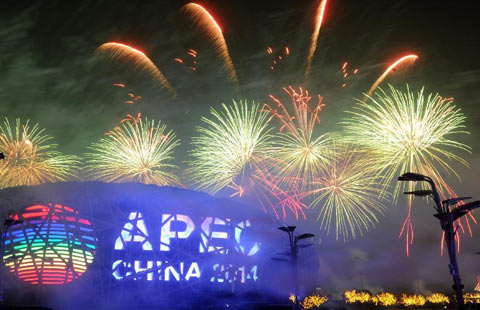
 Magnificent fireworks showed at APEC grand banquet
Magnificent fireworks showed at APEC grand banquet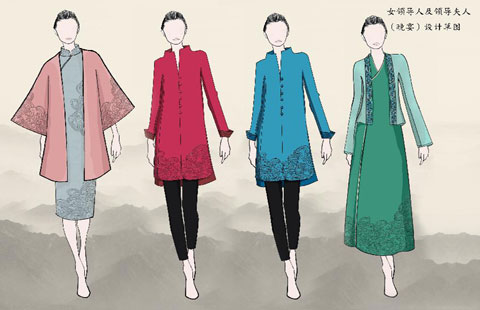
 Chinese-style outfits designed for participants of APEC
Chinese-style outfits designed for participants of APEC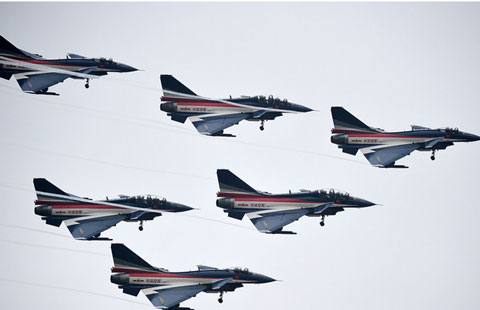
 Aviation airshow takes off in S China’s Guangdong
Aviation airshow takes off in S China’s Guangdong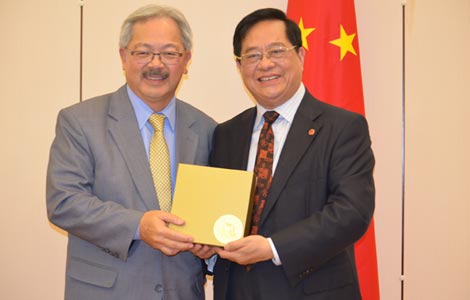
 Consul-General Yuan says goodbye to San Francisco
Consul-General Yuan says goodbye to San Francisco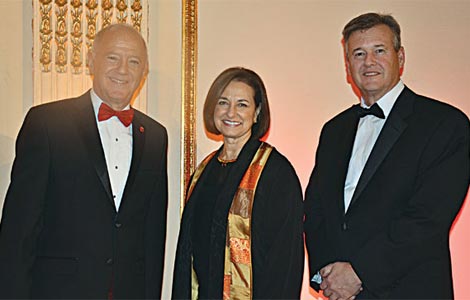
 Kissinger: 'Overcome' issues
Kissinger: 'Overcome' issues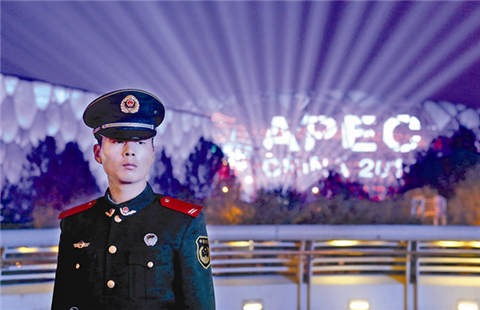
 Peaking for APEC
Peaking for APEC
 Scenery near Yanqi Lake in Beijing
Scenery near Yanqi Lake in Beijing
Most Viewed
Editor's Picks

|

|

|

|

|

|
Today's Top News
Visit brings schools closer
Anbang US hotel deal raises queries
A stroll sets stage for diplomacy
Shanghai railway stations use US Wi-Fi technology
Tencent looks to the final travel frontier
Relaxed stroll sets mood for Xi, Obama
All cheers for wedding expos
Night view of Beijing's APEC Meeting site
US Weekly

|

|







